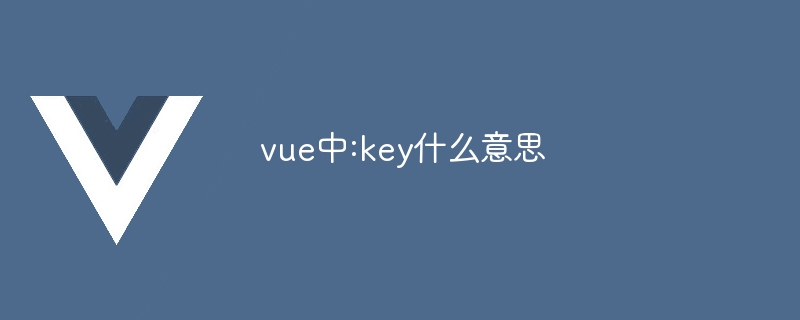Home >Web Front-end >Vue.js >What does key mean in vue?
What does key mean in vue?
- 下次还敢Original
- 2024-04-30 04:15:22858browse
The key in Vue.js is an attribute that uniquely identifies each element in the list. It is crucial for Vue.js’s efficient update mechanism, which avoids unnecessary DOM updates and thus optimizes performance. Specify a unique key value for each element in the list, which can be a string, number, or object. Best practices include using unique values, avoiding indexes, using stable values, and always using the :key attribute in v-for directives.

key in Vue.js
What is key?
key is an attribute used in Vue.js to uniquely identify each element in the list.
Why do you need a key?
key is crucial to the efficient update mechanism of Vue.js. When the elements in the list change, Vue.js needs to know which elements are new and which are updated. Using keys, Vue.js can quickly identify each element so that only the necessary elements are updated, optimizing performance.
How to use key?
Specify a unique key value for each element in the list. key can be a string, number, or object. For example:
<code><ul>
<li v-for="item in items" :key="item.id">{{ item.name }}</li>
</ul></code>
In this example, item.id is used as the key.
Best Practice
- Use unique values: Each key must be unique in the list.
- Avoid using indexes: Indices may change and are therefore not suitable as keys.
- Use stable values: key should not change based on the element's attributes or state.
- Use the :key attribute of v-for: Always use the :key attribute in the v-for directive.
- Consider objects as keys: When using objects as keys, ensure that the properties in the objects are immutable.
The above is the detailed content of What does key mean in vue?. For more information, please follow other related articles on the PHP Chinese website!

